Best PC fans
Keep your PC from feeling the heat with the best PC fans.
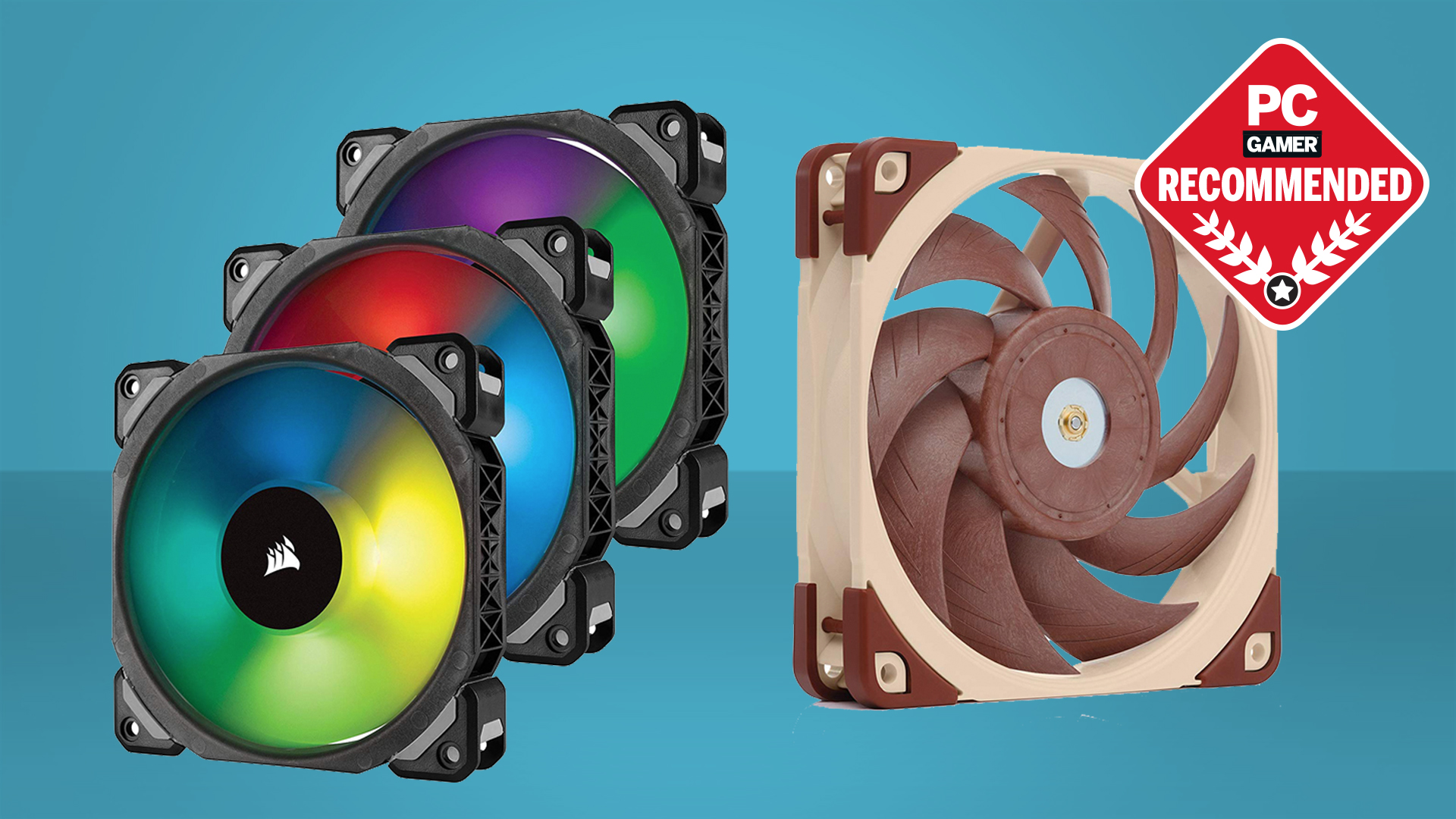
Balanced airflow is one of the fundamentals of keeping your PC cool and operating efficiently, and you can't do that without a handful of the best PC fans. Even the best PC case will eventually shut down without the proper airflow, which becomes even more crucial when overclocking. Every component in your PC is in a near-constant state of generating and dissipating heat, which lingers around in your case and will eventually degrade your system's performance. Even the best CPU cooler will get overwhelmed without something to persuade all that hot air to leave your system. Just like an unwelcome houseguest, hot air won't leave unless you give it a bit of pressure, and the best way to do that is through case fans.
When it comes to fan placement there are some different schools of thought based on what provides optimal airflow, but a good rule of thumb is to avoid having the same number of fans for intake and exhaust, as this introduces a neutral pressure environment to your case, and won't help you get rid of the heat your components are giving off. Ultimately you just want to make sure you're introducing either a positive or negative pressure environment to your case, which basically just means sucking cool air in so hot air can get blown out.
There have been an increasing number of options when it comes to buying fans for your case, but the first thing you want to consider is how many fans and what size. Some mid-tower cases have support for up to 5 140mm fans, but you'll want to refer to your case's spec sheet so you don't overspend. If you're not afraid to spend a little extra, you can even spring for fans that run quieter like Corsair ML120 fans or have sweet RGB lighting like the NZXT AER RGB 2.
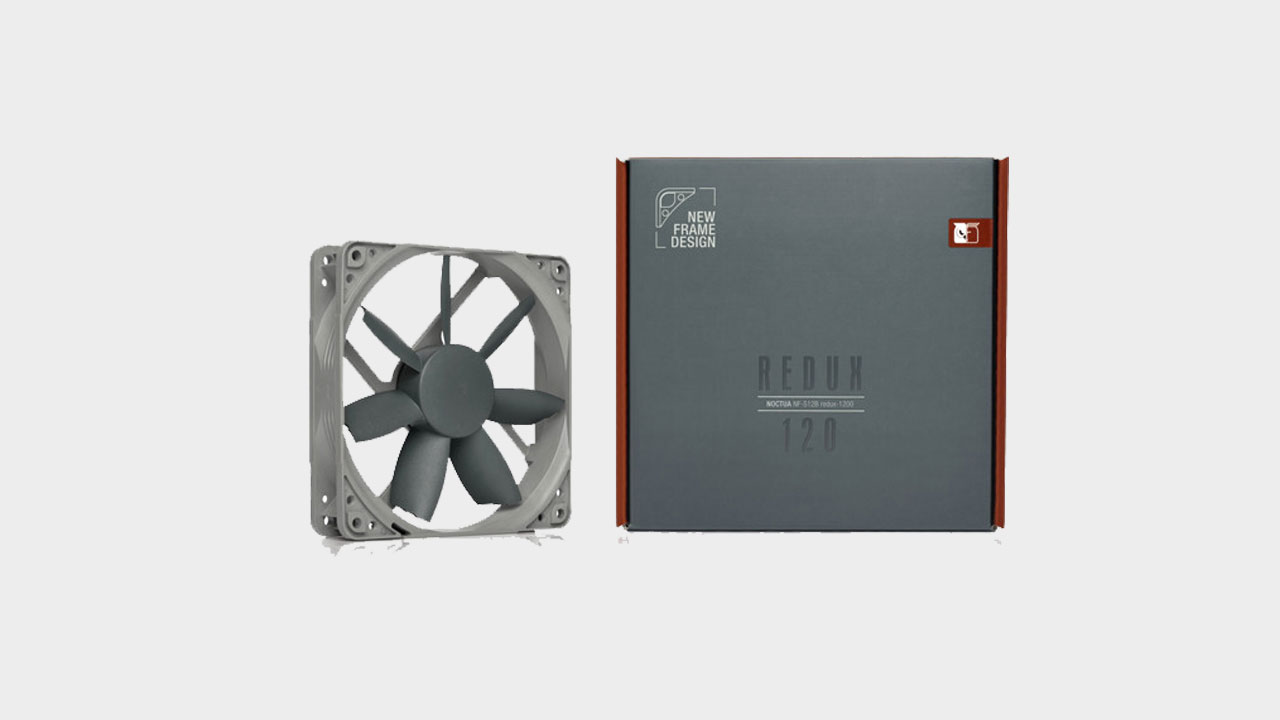
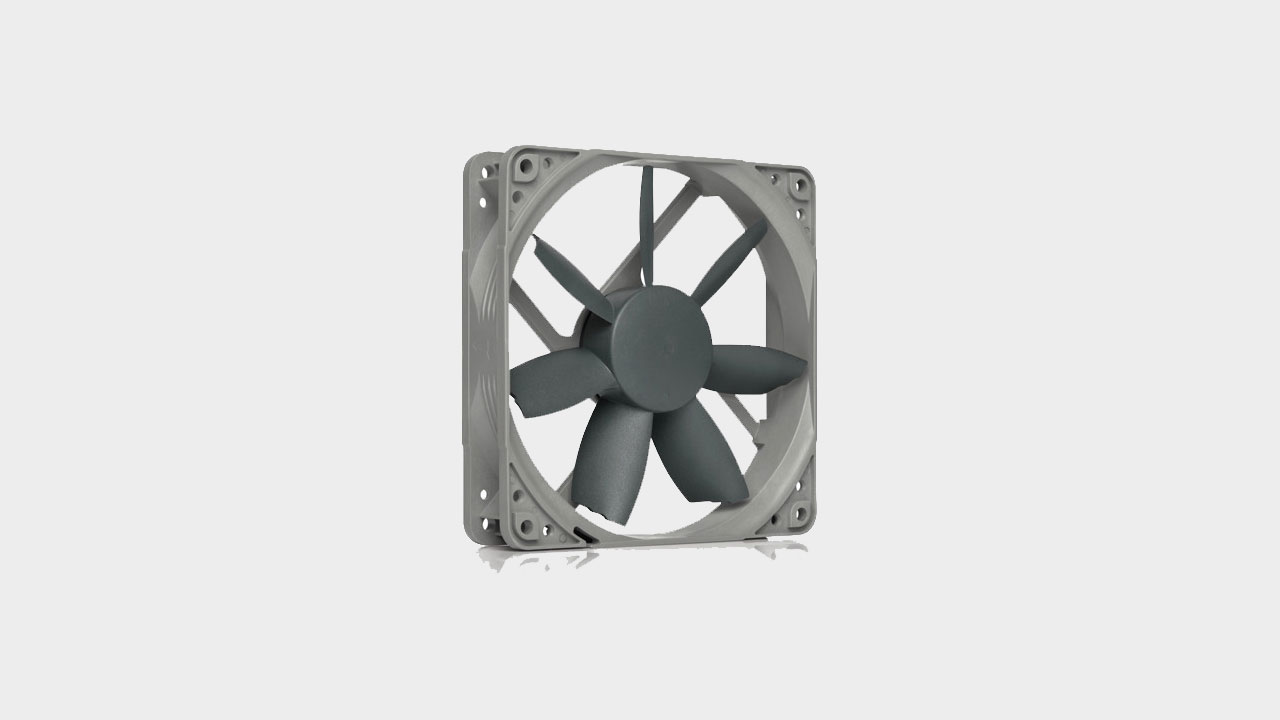
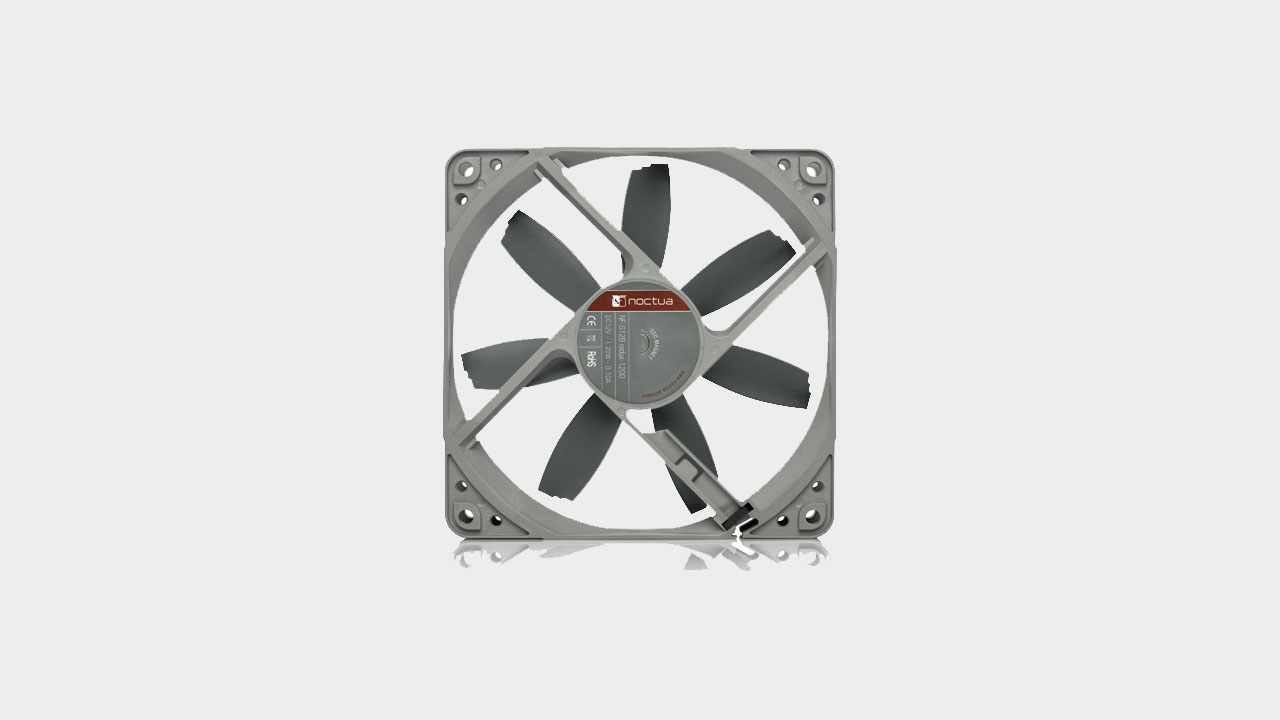
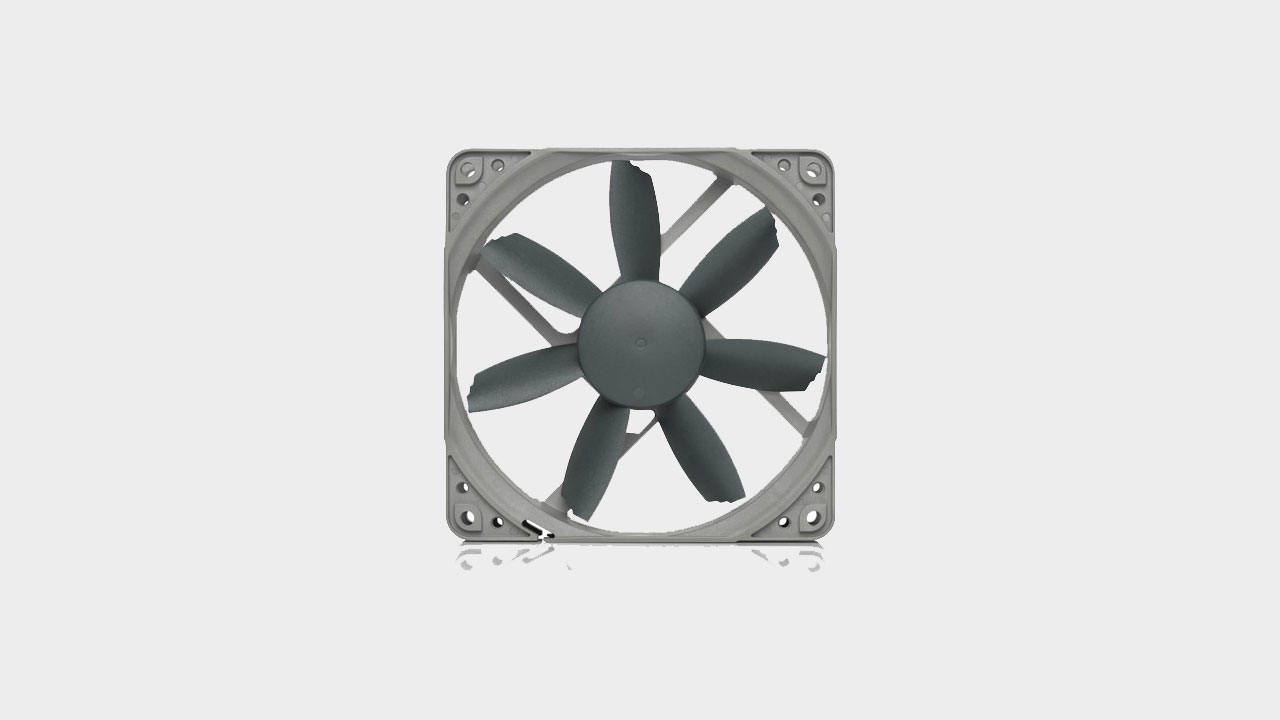
Noctua NF-S12B redux-1200
Specifications
Reasons to buy
If you care at all about case fans, chances are you know Noctua. It's a trusted favorite among many DIY builders, and for a good reason. Noctua builds fans that last a long time, moves a lot of air, and does it quietly. The problem: Until recently, buying Noctua fans meant committing yourself to an ugly khaki-and-mud color scheme straight out of the '70s. Noctua was the definition of function-over-form, an engineering wonder that would impress any enthusiast who looked at your PC but disgust everyone else.
Noctua's recent Redux line finally rectifies this issue, though, recasting time-tested designs in a modern gray-and-black look that won't detract from the rest of your PC build. And of the two Redux models Noctua sent over, the NF-S12B became a quick favorite. It's not as quiet nor as efficient as another blacked-out Noctua model, the NF-S12A, but it is cheap. Time was, Noctua fans meant shelling out a lot of money on your build, but the NF-S12B redux balances great performance with a budget-friendly price tag and looks great in the process.
You'll find no RGB lighting here—no frills of any kind, really. But the NF-S12B's Self-Stabilising Oil Pressure Bearings will last for years while moving more air at mid-range speeds than any non-Noctua fan we tested and somehow keeping quieter than the competition as well. It's a clear winner.
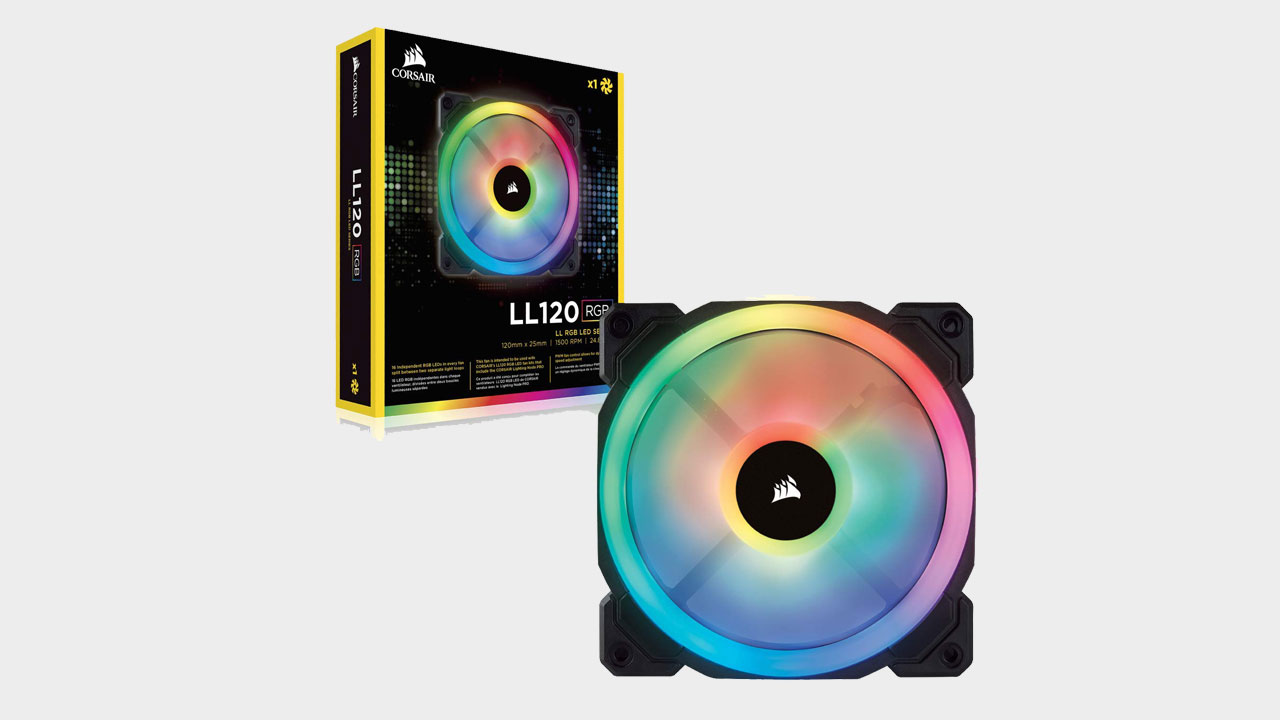
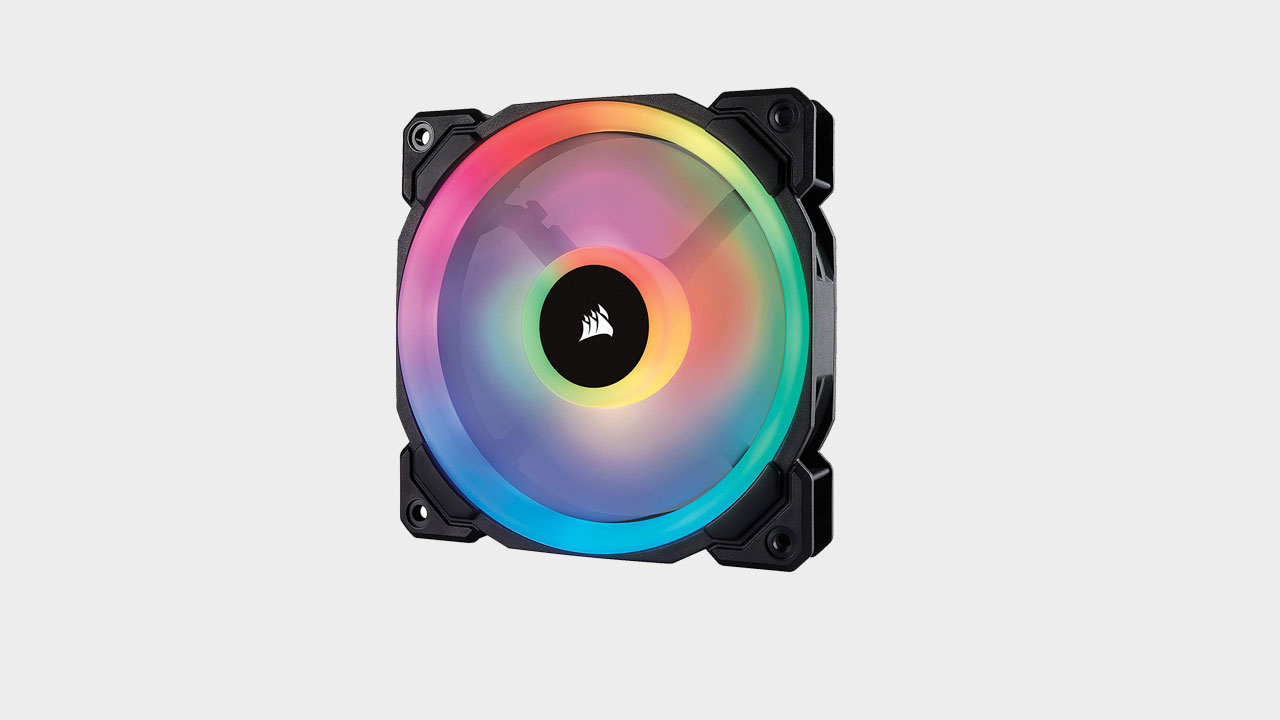
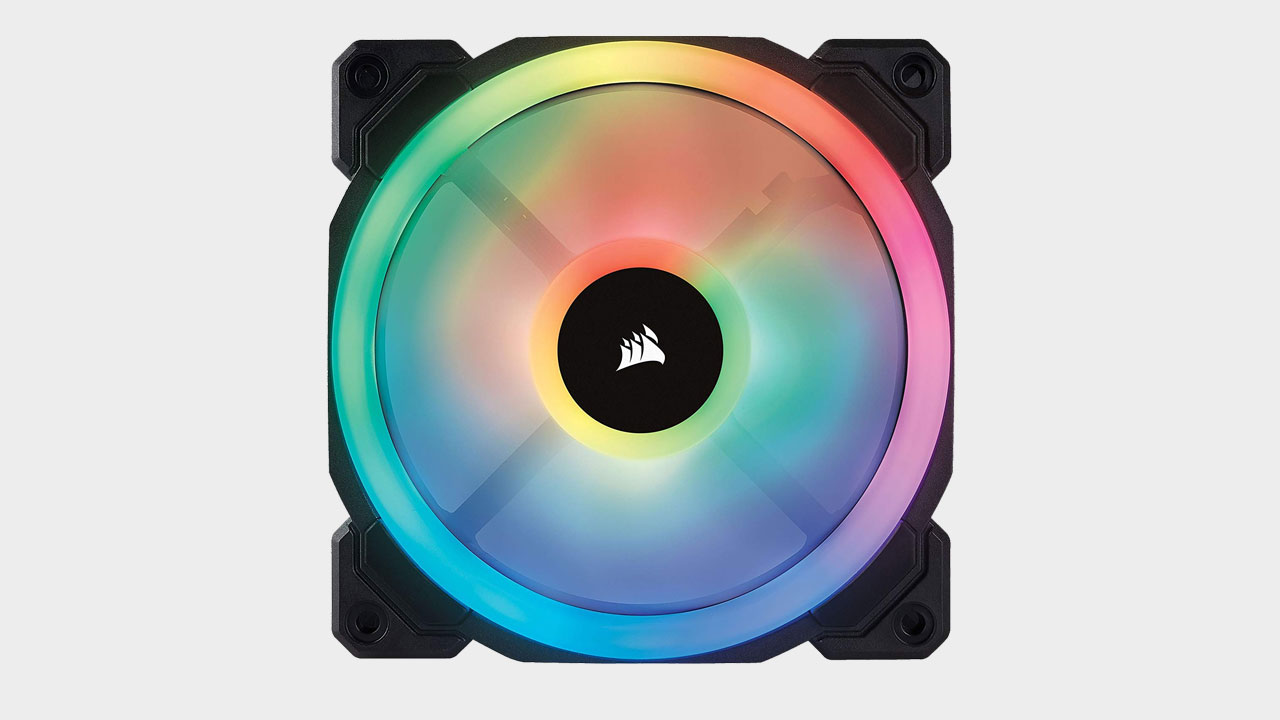
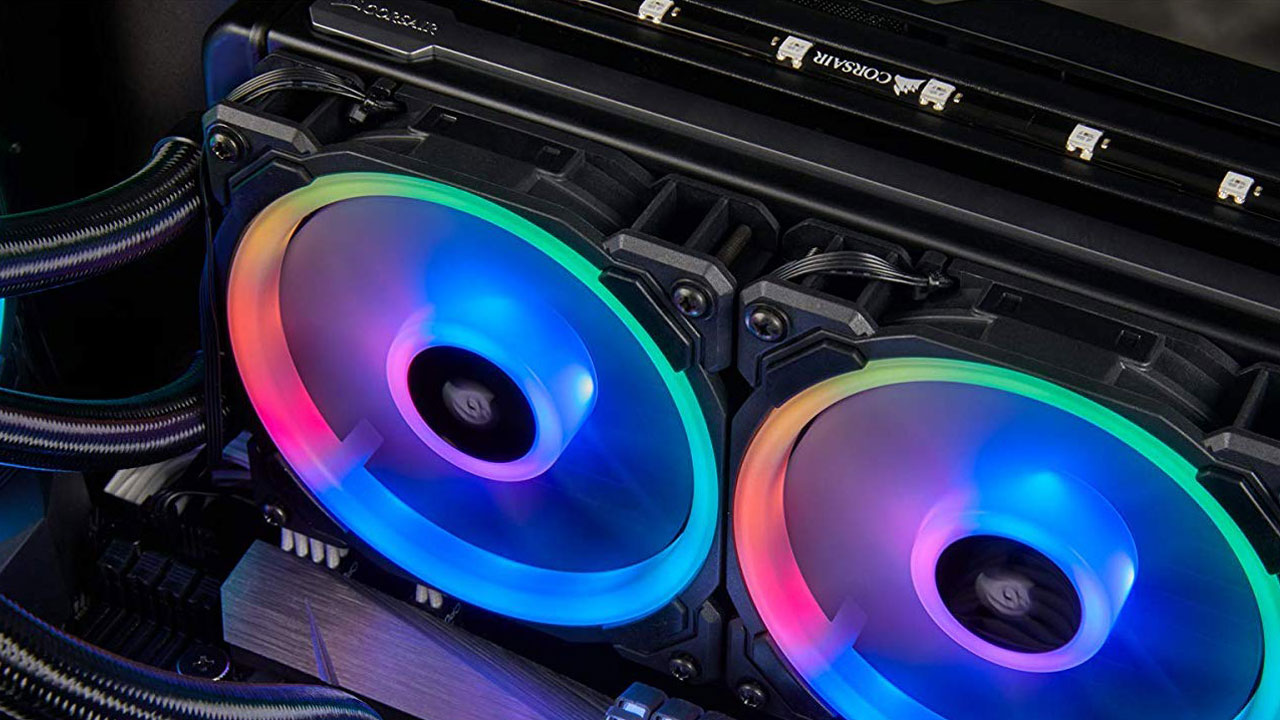
Corsair LL120 RGB
Specifications
Reasons to buy
Do you need RGB fans? No. Do you want RGB fans? Perhaps! They can look great in an all-glass case or even through a traditional side-window, and if you're chasing that full-cyberpunk aesthetic, then Corsair's LL120 Pro RGB fans are the best you can buy.
The biggest gaming news, reviews and hardware deals
Keep up to date with the most important stories and the best deals, as picked by the PC Gamer team.
The LL120s are packed full of RGB LEDs. Each has a complement of LEDs shining out from the rotor, diffusing light down the blades' length as they spin. Then there's a separate ring of light embedded around the housing's outer edge. As a result, the LL120s are the brightest and showiest fans we tested and a perfect fit for any RGB addict.
They're not just for show, though. The LL120s are also pretty solid fans, lighting or no. At mid-range speeds, they tend to be slightly louder than the competition, but at load, they're quieter than just about any non-Noctua fan we tested—and that's only because most of the Noctua fans top out at 1200 RPM, versus 1500 RPM for the LL120. The biggest problem? They're expensive. Like, incredibly expensive. To use LL120s, you need to commit to purchasing a three-pack of fans with an included Corsair Lighting Node Pro.
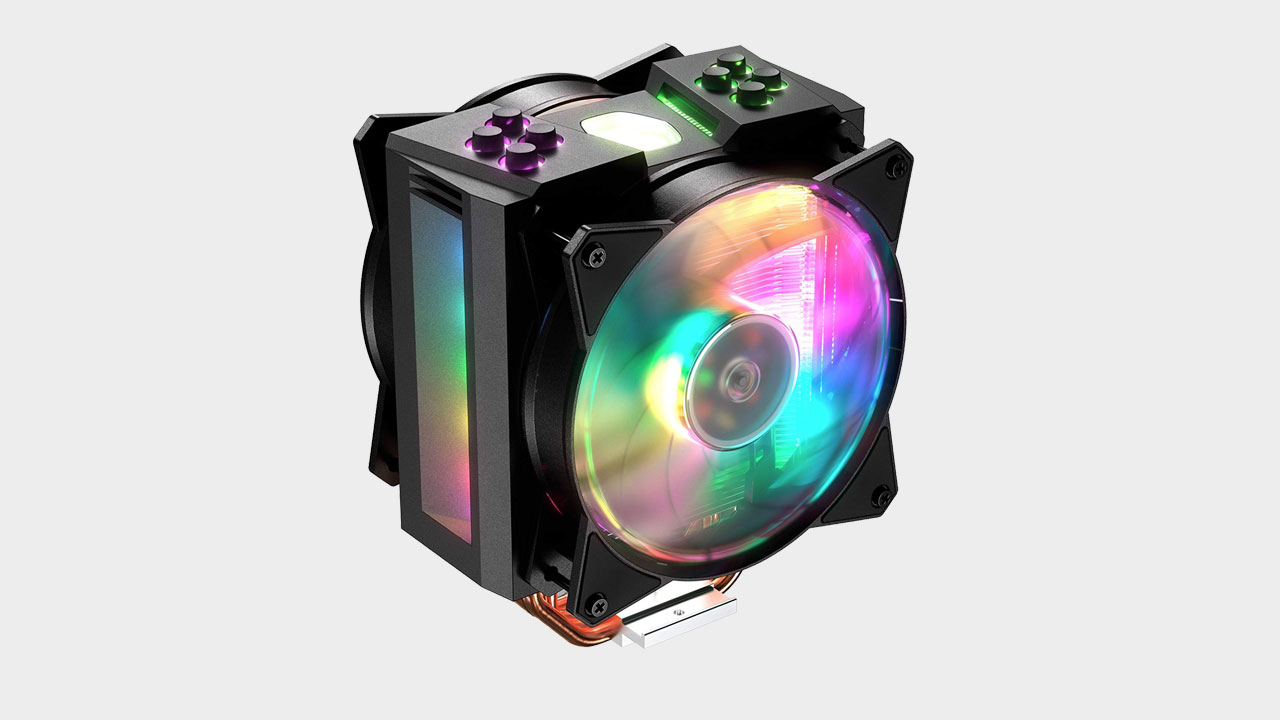
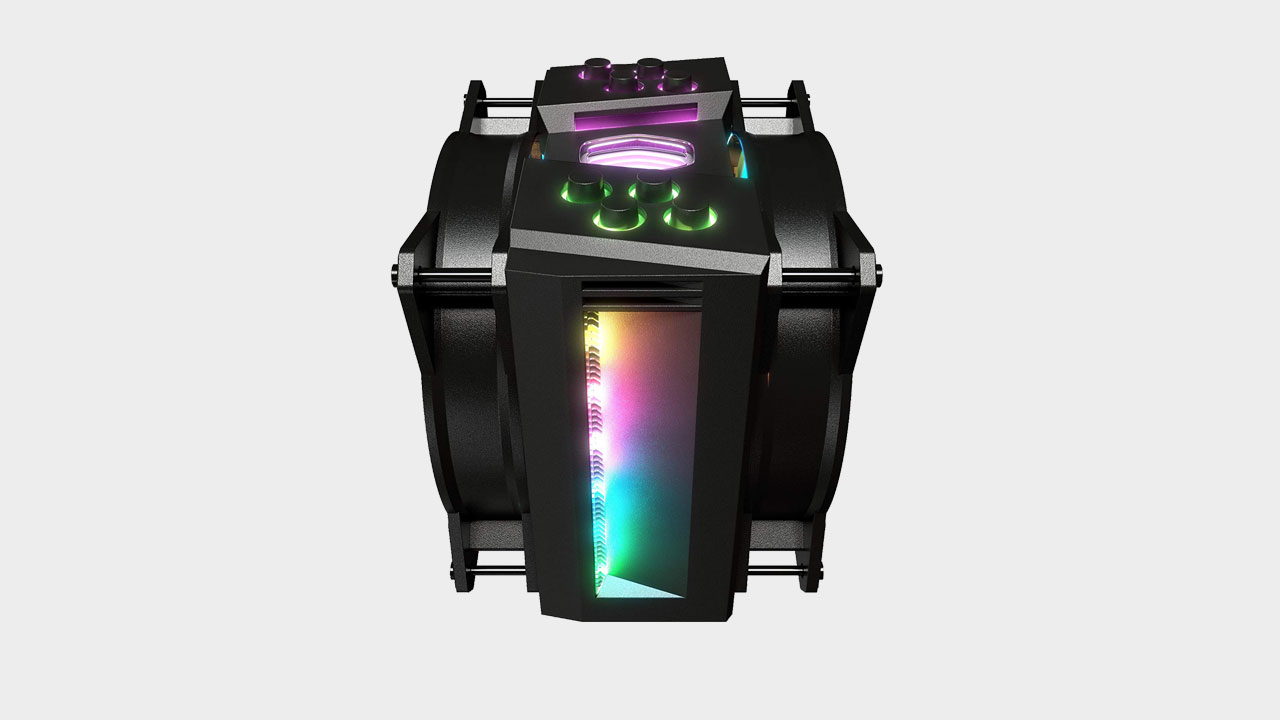
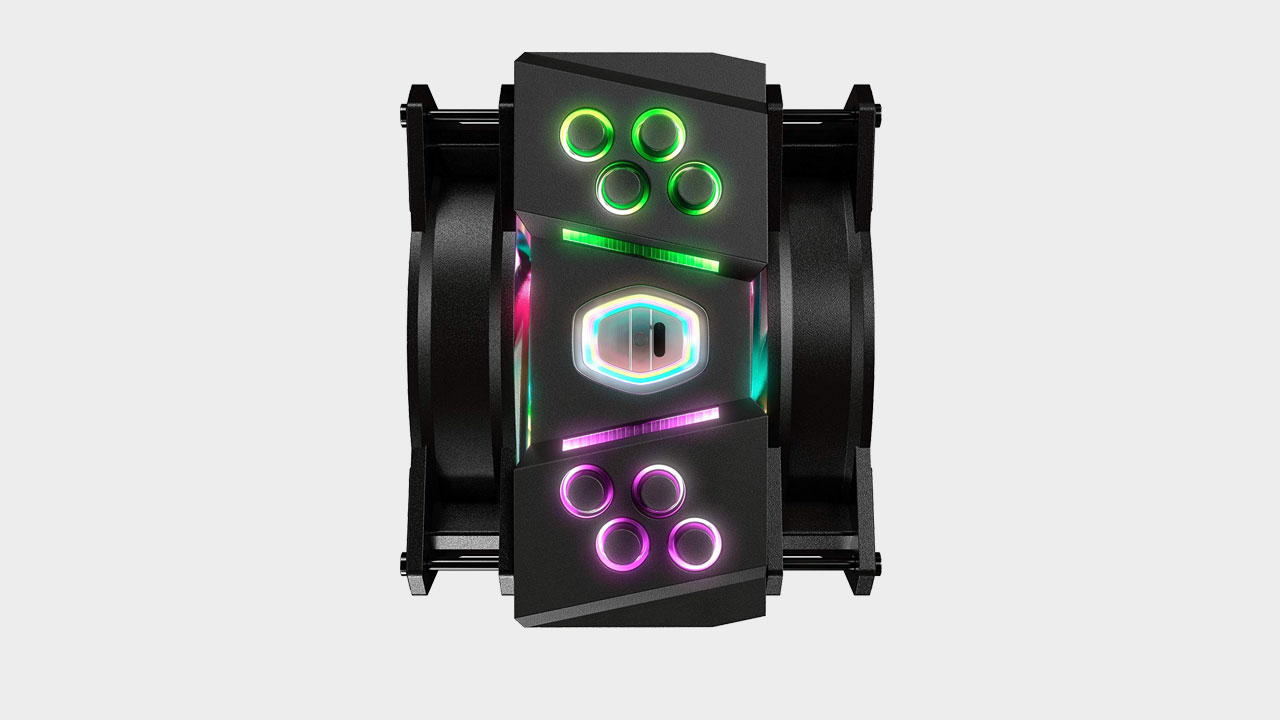
Cooler Master MF120R A-RGB
Specifications
Reasons to buy
Okay, so maybe Corsair's LL120 fans are outside your price range. That doesn't mean you have to give up those RGB-everything dreams. We tested a few (reasonably) budget-friendly RGB options as well, and of those, we're recommending Cooler Master's MF120R A-RGB kit.
Cooler Master's RGB design is a bit less high-tech than the LL120s, featuring only fan-blade lighting instead of the second ring around the outside. It's still a pretty attractive fan though, fairly bright and with smooth transitions.
So what's the catch? They're loud. Like, really loud. Even Cooler Master admits it, listing the MF120R at 31 dBA. In our own tests the MF120R kit was reasonably quiet at 1200 RPM but completely unusable at its maximum 2000 RPM speed, posting the loudest measurements of any fan we tested—louder even than the other 2000 RPM fans we tested, the NZXT Aer RGB 2 and the Noctua NF-A12x25.
Granted, the MF120Rs move a lot of air at top speed, tying the Noctua NF-A12x25 for the highest airflow. There's no way you'd want to run them at that speed though, at least not for typical gaming use. Still, you get a full RGB lighting setup and some pretty strong fans for a fraction of the cost of Corsair's kit. As long as you limit the MF120Rs to running at 1200 or 1500 RPMs max, they might be a good alternative.
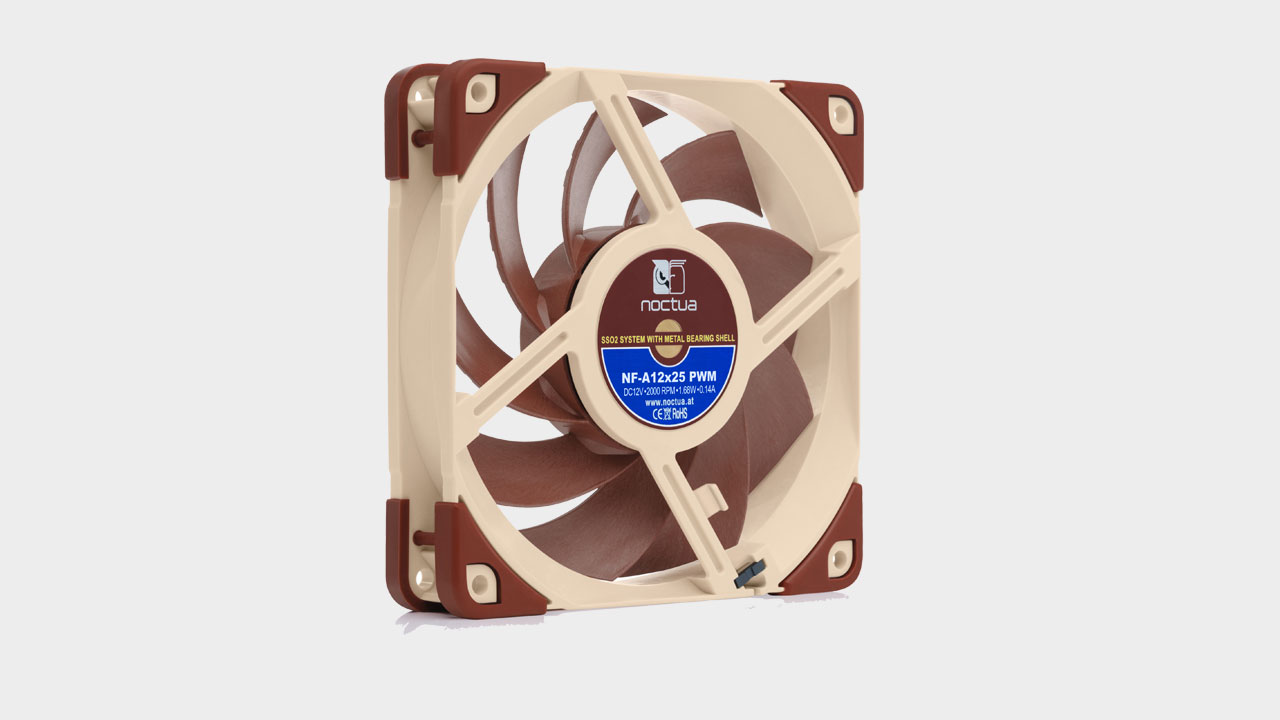
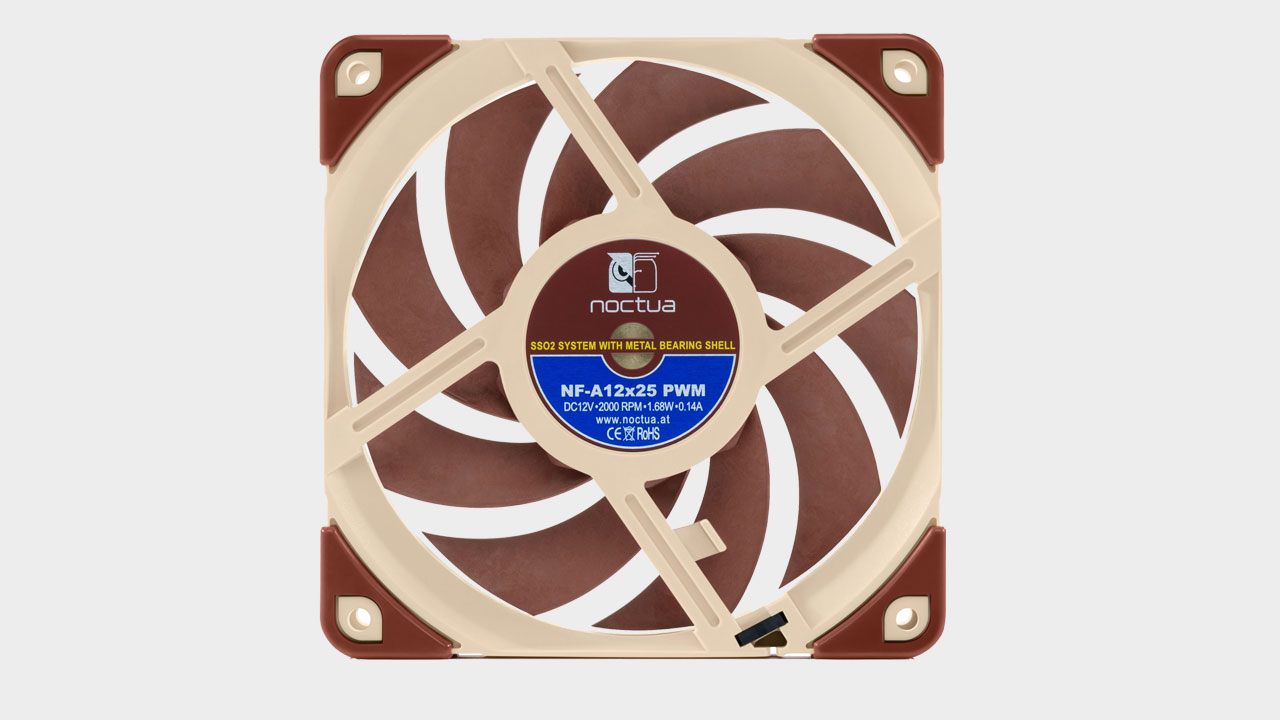
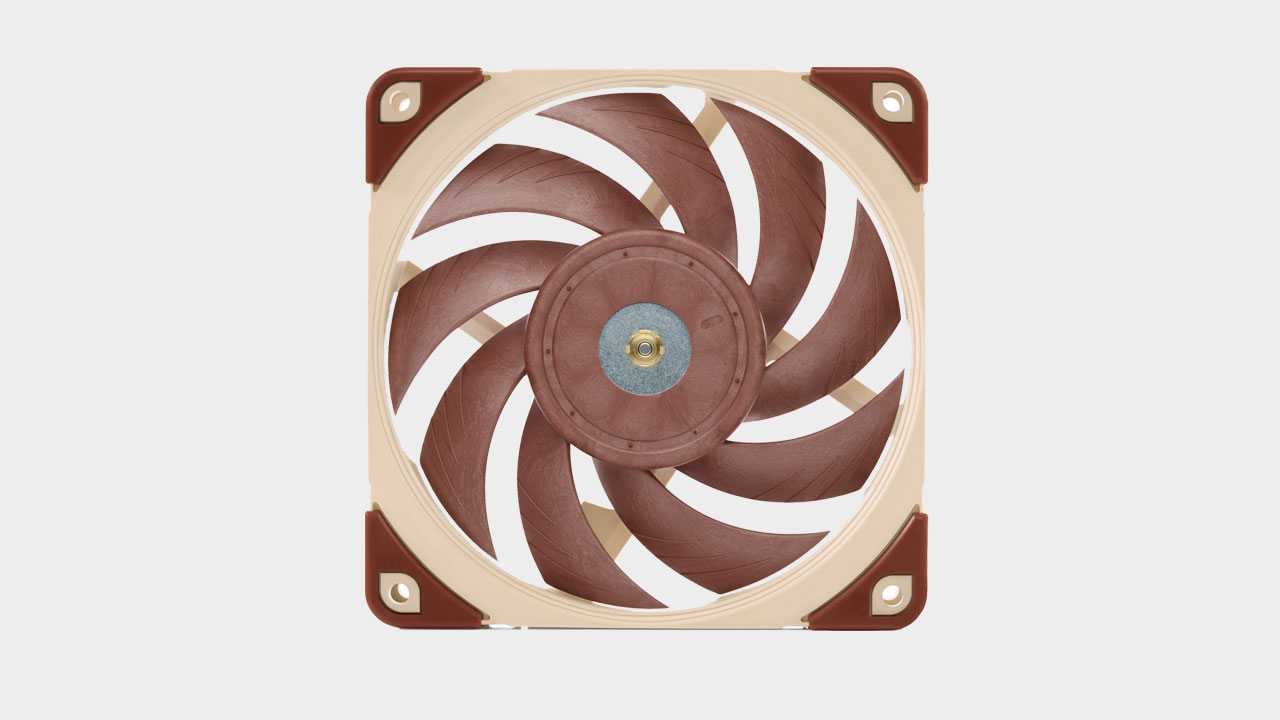
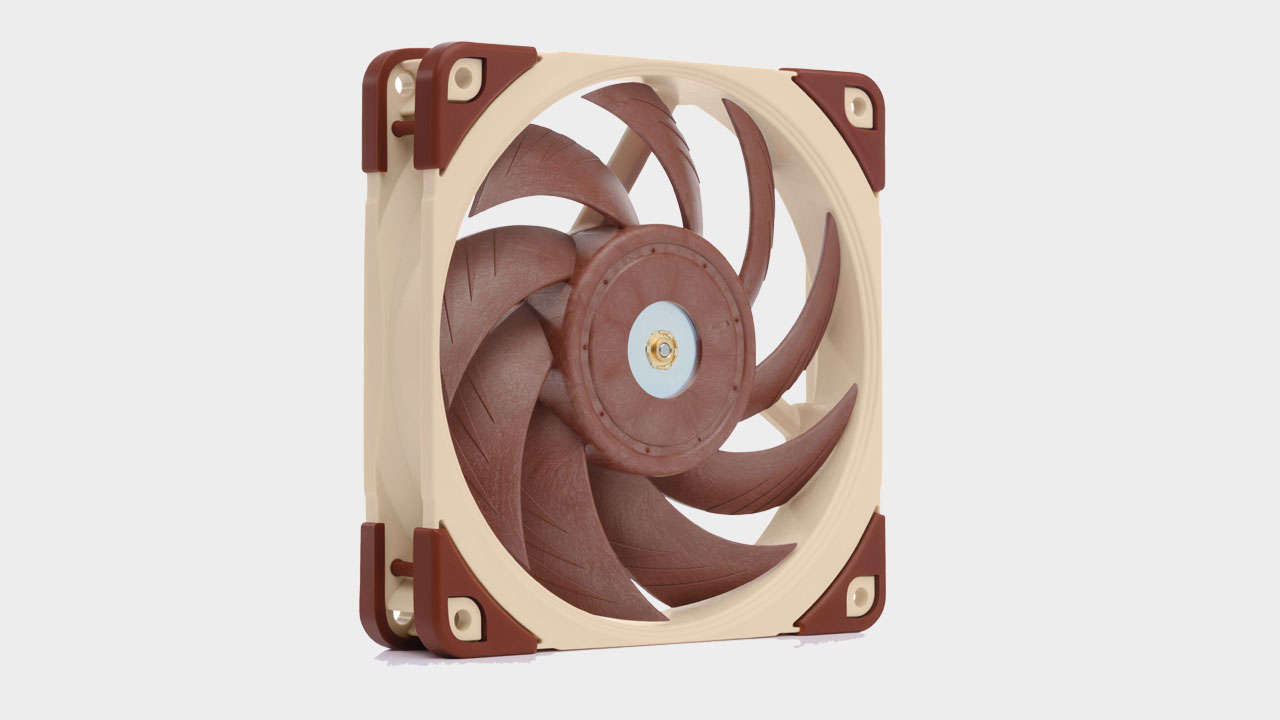
Noctua NF-A12x25 PWM
Specifications
Reasons to buy
Here's some good ol' Noctua khaki-and-mud for the diehards. The Noctua SF-12B above is a fantastic fan, but if you're looking for a top-tier 120mm model that can move a lot of air, the awkwardly named NF-A12x25 blows away the competition. Of all the fans we tested, this is the model that pumped the most air through our test rig.
Of course, it was able to do that because it maxes out at a zippy 2000 RPMs. (Most of the competition maxed out between 1200 and 1500.) And moving that much air comes at a cost, namely noise. Noctua's own stats put the NF-A12x25 in the middle of the pack for noise, but our tests say otherwise—at least, at top speed. Spinning along at its full 2000 RPM glory, the NF-A12x25 was the second-loudest fan we tested, surpassed only by another 2000 RPM Cooler Master fan.
But—and this is important—the NF-A12x25 was also the quietest fan we tested when running at lower RPMs. Our numbers have it putting out less noise at 1200 RPMs than some fans running 300 RPMs slower. Since those mid-range speeds are generally more likely to come up in day-to-day use, that makes the NF-A12x25 an excellent choice for your average gaming PC while still giving it the headroom to spin up to 2000 RPMs in the middle of a heatwave.
Sure, Noctua's trademark brown fans will stick out like a sore thumb in whatever PC you build, but they're also a sign of quality, and the NF-A12x25 lives up to the legacy. It's also a nice touch how many accessories come with the NF-A12x25, from a 12-inch extension cable and a Y-splitter to a bunch of rubber vibration dampers. The price is high, but it's hard to argue the value.
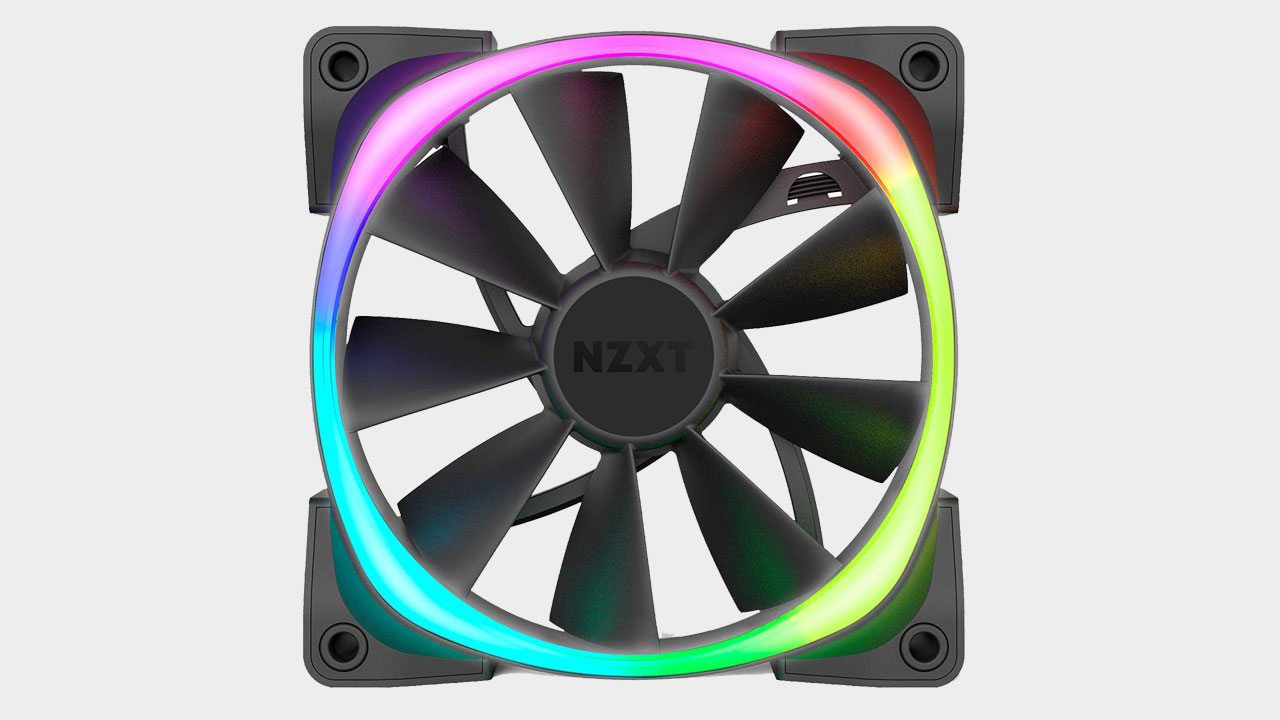
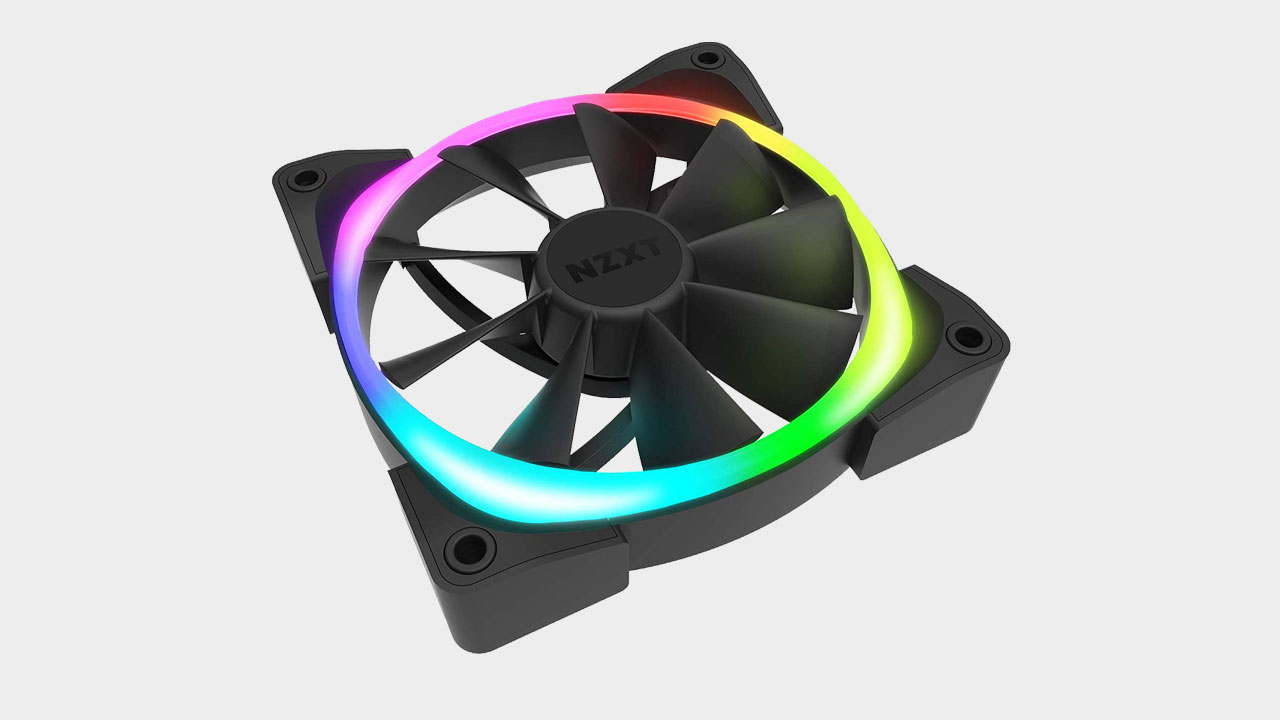
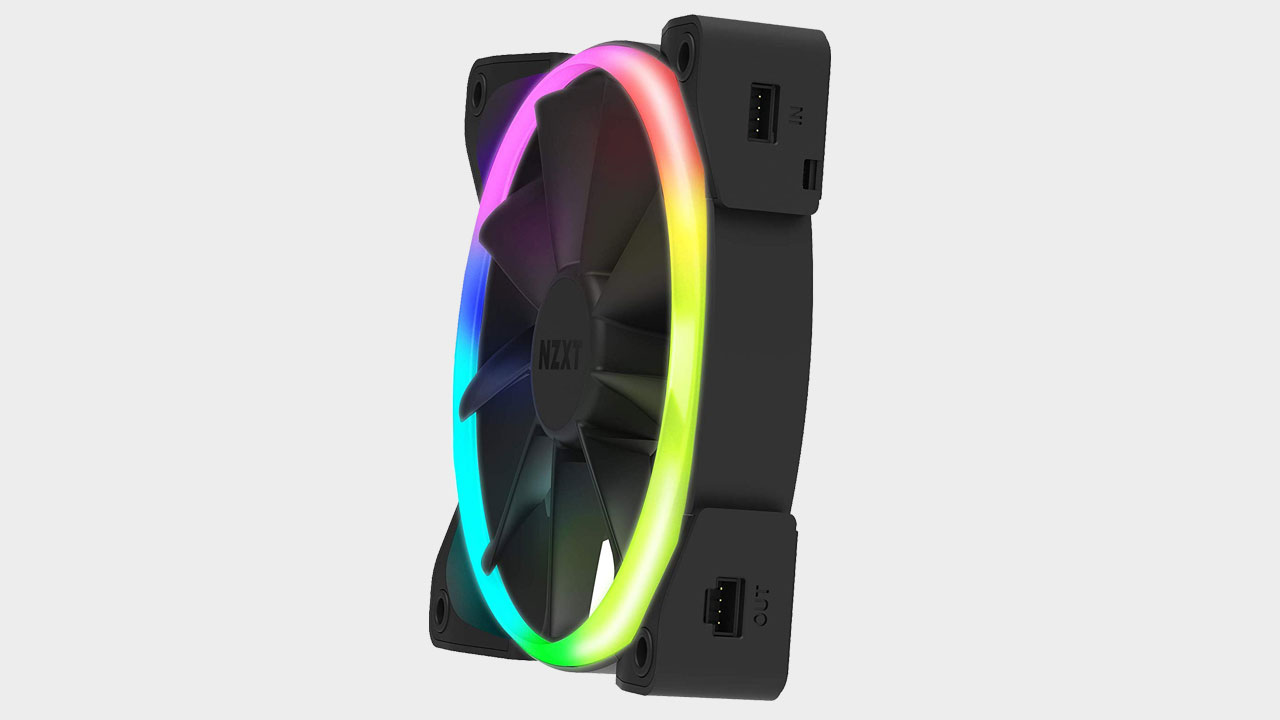
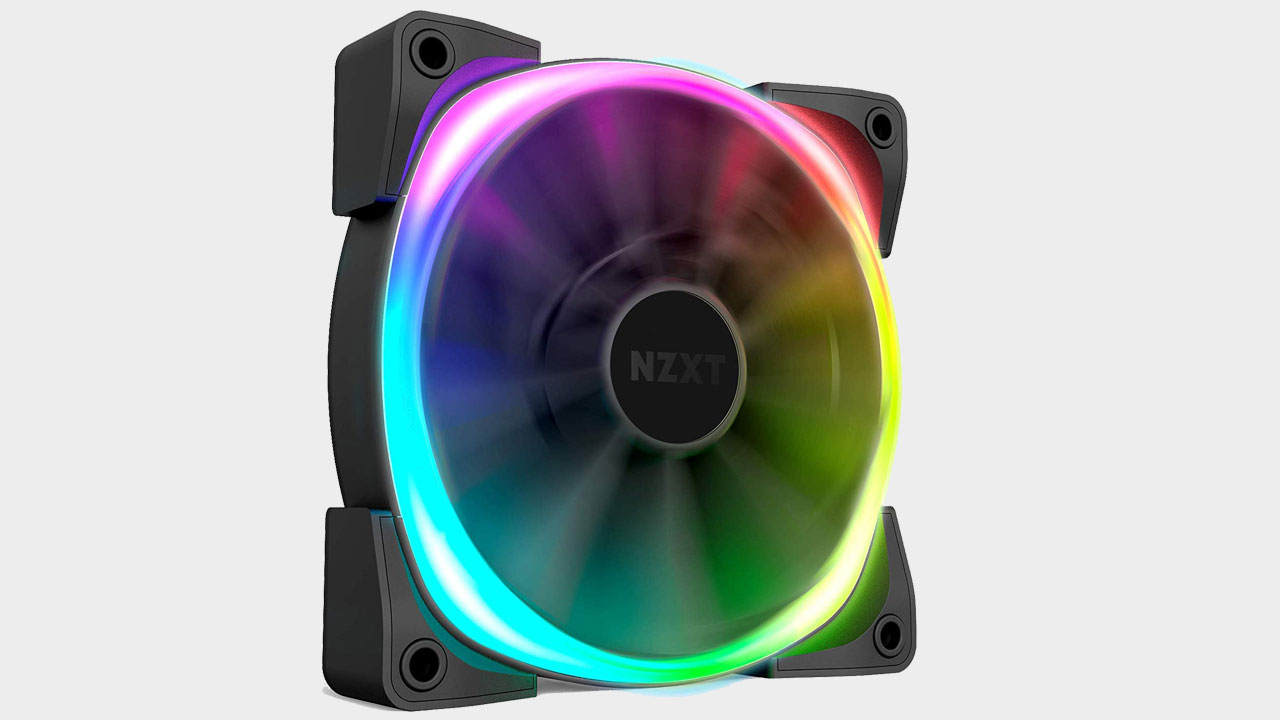
NZXT Aer RGB 2 120mm
Specifications
Reasons to buy
NZXT makes gorgeous hardware. It's not always the most cost-effective hardware, nor the most efficient, and indeed the NZXT Aer RGB 2 won't win any prizes for its performance in our tests. At its top speed of 1500 RPMs, the Aer RGB 2 moves a surprising amount of air, but it's also louder than nearly every other fan we tested. And even in our low-speed tests, the Aer RGB 2 proved a hair noisier than the rest of the competition.
Look at it, though. It's really a sight to behold, especially in person. Unlike Corsair, NZXT limits the Aer RGB 2's LEDs to the outer ring, casting a slight glow on the spinning fan blades without directly illuminating them—and shining a lot of light outwards into the case. It's a really clean look, objectively as gaudy as any other RGB setup but seeming a bit sleeker and refined somehow. The Hue 2 controller is also more attractive than any of the other boxes we looked at, meaning you won't mind having to include it alongside the fans in your all-glass case. Like Corsair, NZXT struggles with price though.
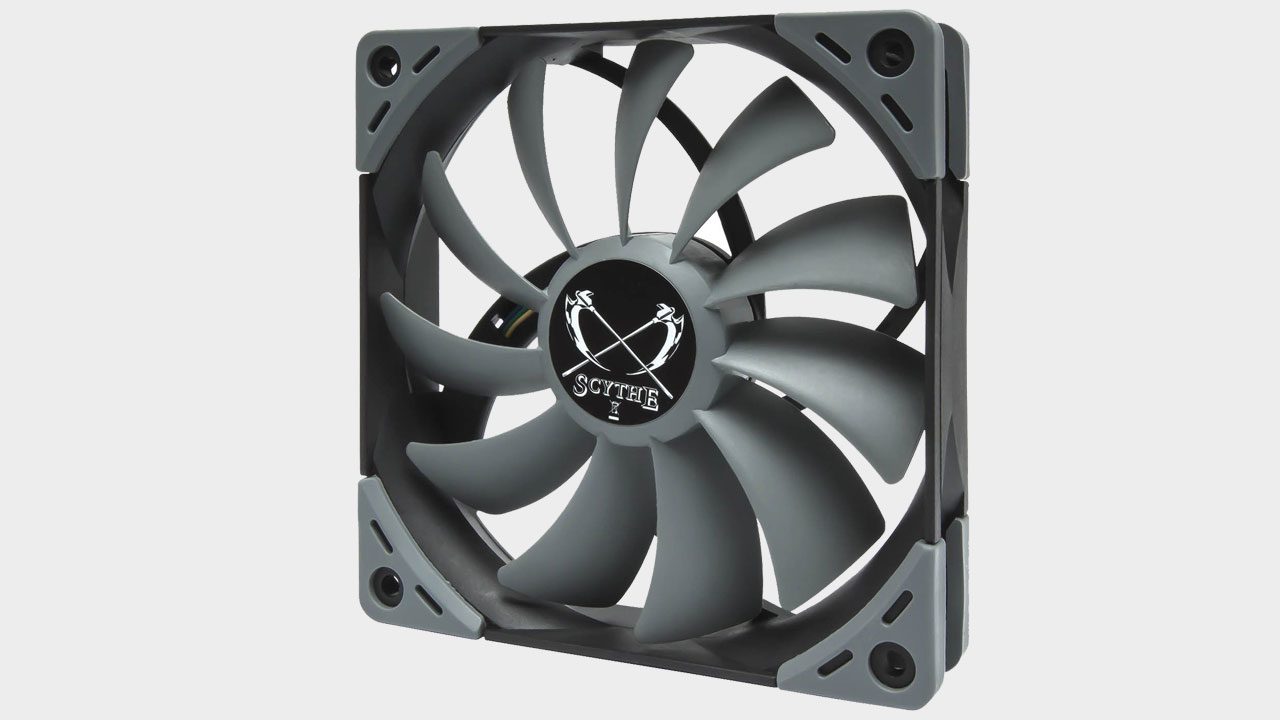
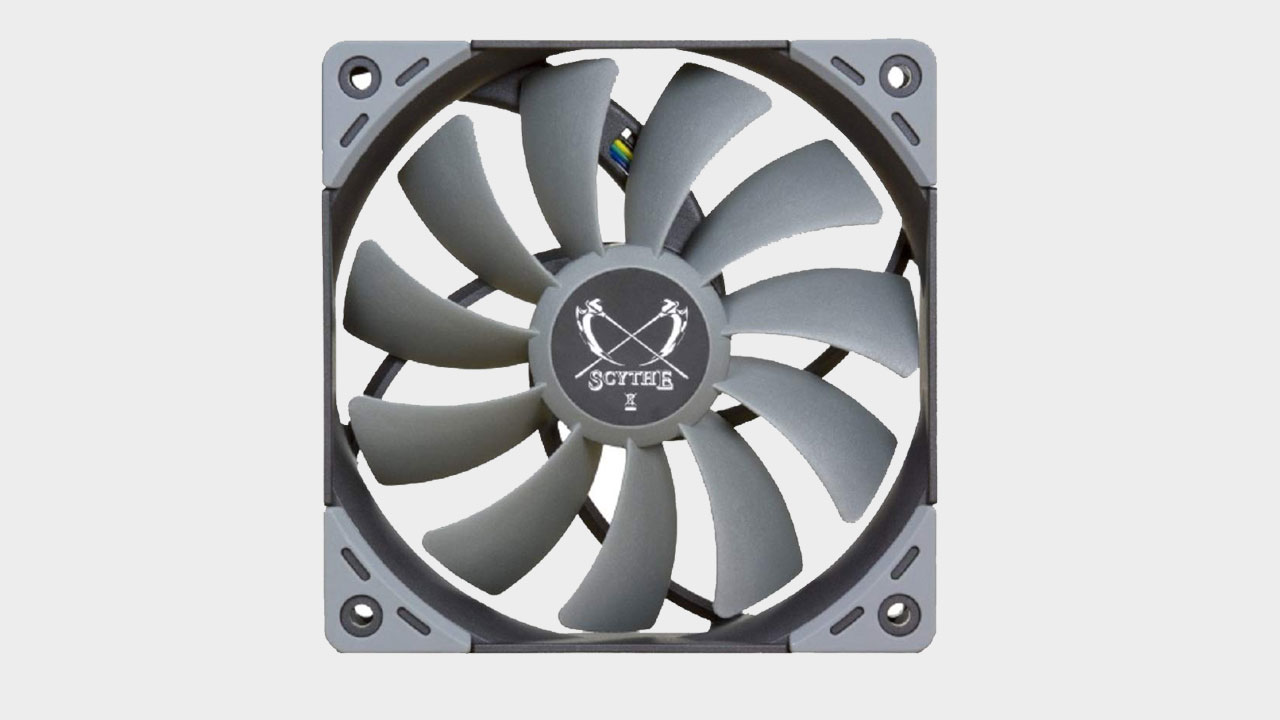
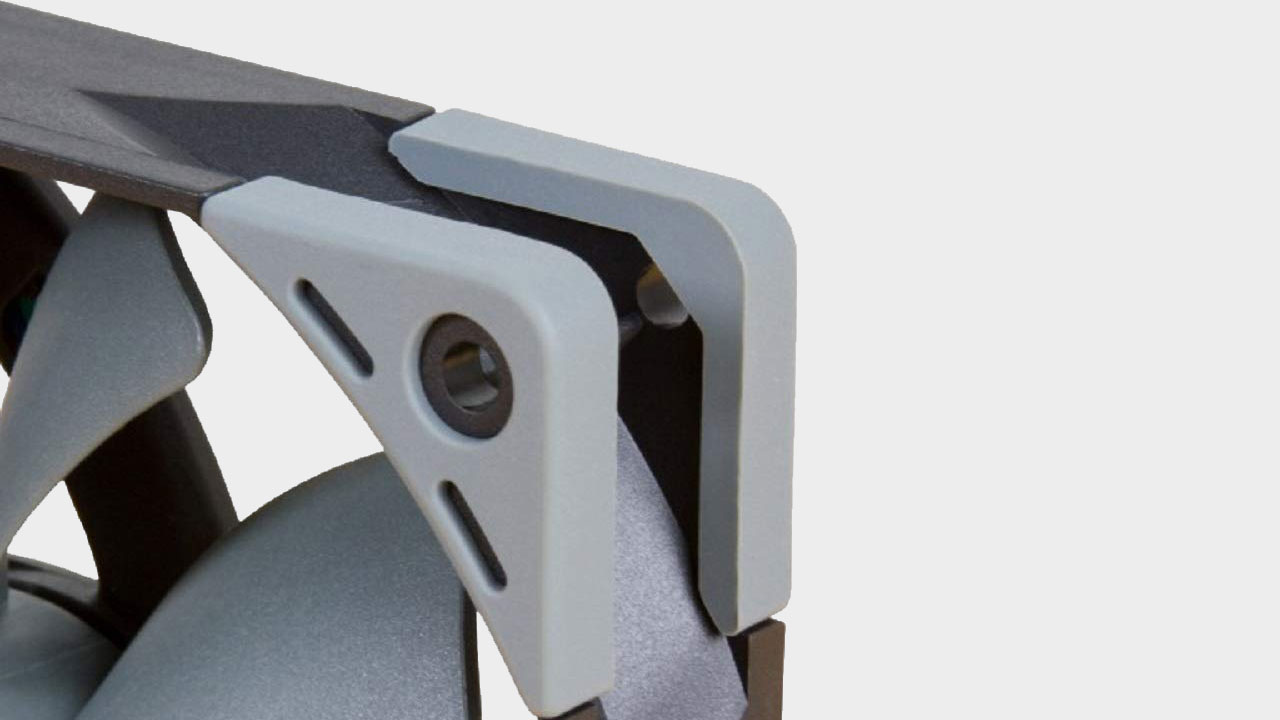
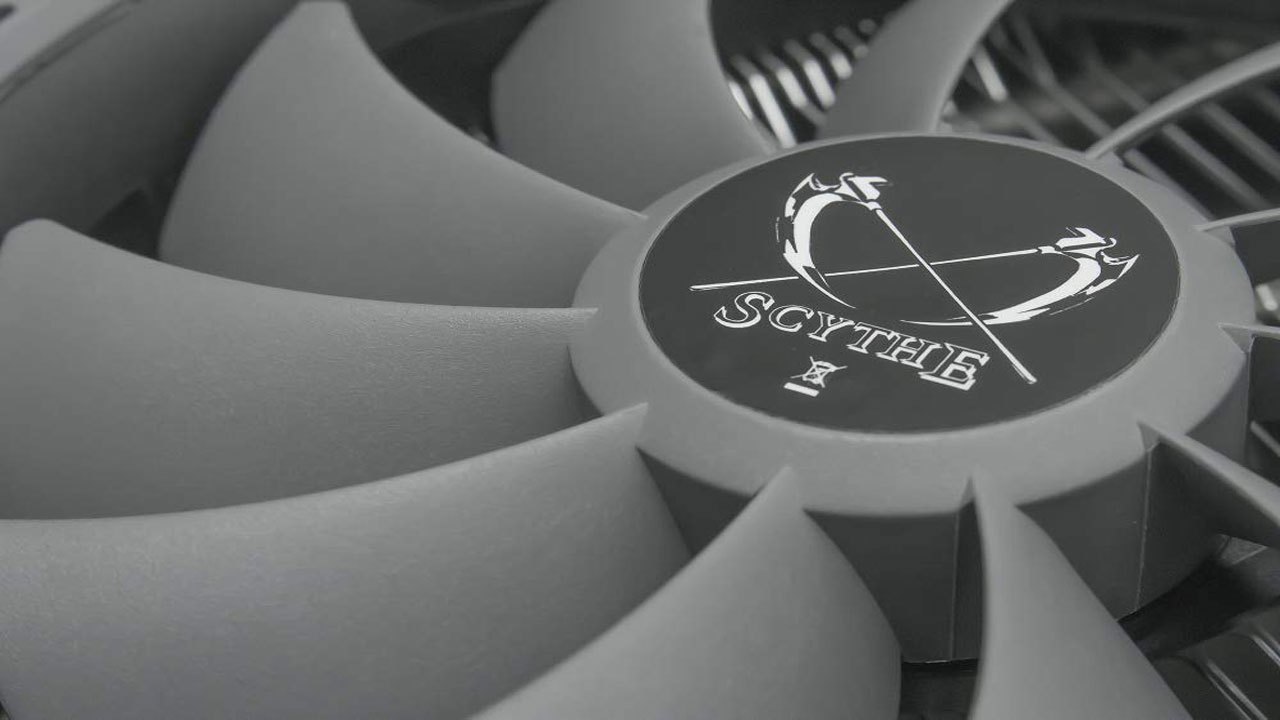
Scythe Kaze Flex 120 PWM
Specifications
Reasons to buy
Scythe doesn't make a great first impression, granted. The Kaze Flex 120 PWM arrives in a cheap plastic package, looking more like it came from an auto shop than a modern PC retailer. Side-by-side with Noctua's Redux packaging, or Corsair's weighty boxes, Scythe feels every part of the budget fan solution.
And to some extent, that's true. Chances are, if you were planning to skimp on fans, Scythe would come up in some of your searches. Scythe makes a ton of fans, and some are much better than others in our experience.
The Kaze Flex 120 PWM we tested is one of the company's better models, though. At 1200 RPMs, the Kaze Flex 120 moved more air in our test rig than some of the competition (Corsair, for instance) did at 1400 or even 1600 RPMs, presumably a result of having eleven blades where most fans have only nine. Lots of air goes hand-in-hand with noise, though, and indeed the Kaze Flex 120 PWM is also noisier than the competition at any given speed setting—though since it tops out at 1200 RPMs, the noise is never as bad as models that spin up to higher speeds.
If you want a decent budget-friendly fan and the SF-12B isn't doing it for you? Scythe's blade-heavy blower might be the right choice. And hey, it's one more company that hasn't dipped into the RGB LED well yet. That's worth something.
Alice is PC Gamer's resident peripherals expert and PC parts nut. She's been breaking computers to learn more about them for as long as she can remember, developing a lifelong motto of "instruction by destruction." "Pick up" is her favorite SCUMM verb.


